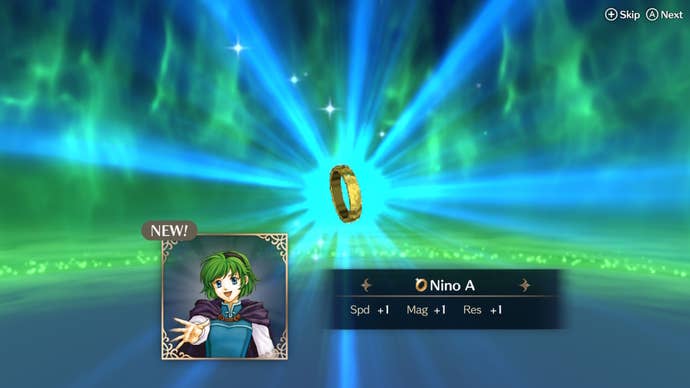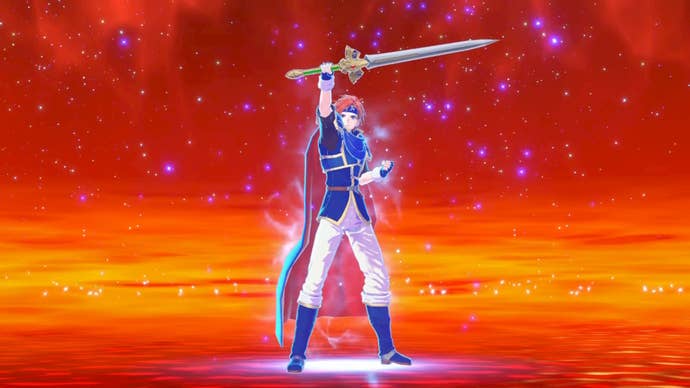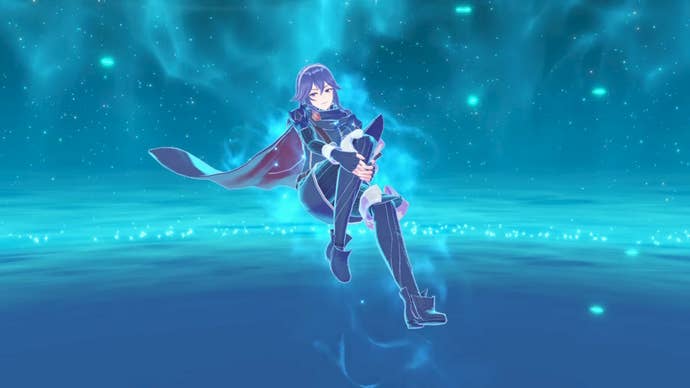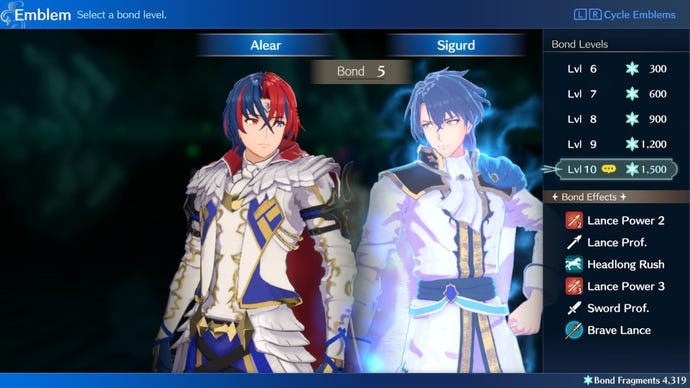Fire Emblem Engage skills: The best skills and how to get more SP
Who needs Boots when you can ride an imaginary horsey
Fire Emblem Engage skills are open for pretty much everyone to learn, with the exception of personal skills, which are – as you’d expect – unique to individual characters.
The trouble with such an open system is figuring out which skills are best for which character. The answer to that depends on who you're using and in what capacity, but there are a few skills that stand out among the rest.
Just make sure to take your preferred units into battle frequently, so they earn enough SP to purchase the skills you want for them.
Fire Emblem Engage skills
- How to get new skills in Fire Emblem Engage
- How to get more SP in Fire Emblem Engage
- Best skills to inherit
- How to raise support levels
How to get new skills in Fire Emblem Engage
Every unit has a few extra skill slots aside from their class and personal skills. Once they reach bond level 5 with a specific Emblem, they can inherit that Emblem’s skills by spending SP. Some skills cost thousands of SP, so unless you’re playing on New Game+, possibly not for the first time, you likely won’t have the resources needed to unlock every skill for your favorite characters.
Pick the ones that suit your style for them the most. For example, if you have Timerra in the Picket class – which you should – you might want to give her skills that boost defense and dexterity to help trigger the unique class skill. Alternatively, since her strength stat is fairly low, you could bolster her attack and speed to make her more of an offense-oriented unit.

You can also put together deadly combinations – Vantage for Generals or Great Knights to offset their low speed, for instance – or weird ones, like Canter for units with no horsey.
New skills unlock as you reach new milestones in your Emblem Bond levels. Typically, what you see in the first five or 10 levels is what you get for the remaining 10 - the same skills but with better effects.
How to get SP in Fire Emblem Engage
Units earn SP by taking part in battle. Attacking enemies earns SP, defeating them earns even more, and you can rack the points up by using staffs on allies or enemies. Skirmish battles against golden and silver Corrupted also reward your units with bonus SP, so keep an eye out on the Skirmish menu to see if any of those appear after a battle.
Fighting in Arena battles against other units will also earn some SP. You’re limited to 3 Arena battles after each fight, though it’s still a useful way to earn SP, even if it isn’t the most efficient.
The best Fire Emblem Engage skills to inherit

Every Emblem comes with general stat-boosting skills that match their fighting style. Lyn offers speed bonuses and better hit rates for bows, while Ike raises axe power and defense. Each also has a handful of unique, powerful skills that augment a character’s abilities in more significant ways. These usually cost more SP, so it’s best to plan ahead and figure out which skills you want on which character.
Since Emblem skills are tied to specific Emblems, you can only access them while you have that Emblem in your party. All of your starting Emblems – Marth, Celica, Sigurd, Roy, Leif, and Micaiah – will disappear for a while after chapter 10, so bear that in mind when deciding who should learn which skill. You can also learn skills from certain S-rank lesser Emblem Rings, those from notable characters such as Chrom, Caeda, and Mae. Some of the skills are quite good, but the process of acquiring them relies so heavily on luck and costs such a high amount of Bond Fragments that it’s not really worth trying for.
| Skill Name | Effect |
|---|---|
| Dual Assist and Dual Assist+ (Lucina) | Units who can chain attack will initiate a chain attack if they're within range of the target foe |
| Draconic Hex (Corrin) | After the unit attacks a foe, the foe suffers -4 in all stats |
| Divine Pulse (Byleth) | Turns a missed attack into a hit |
| Mentorship (Byleth) | Grants the unit and adjacent foes +1.2 percent EXP |
| Vantage (Leif) | Units with 25 percent HP or less will attack first if a foe attacks them |
| Arms Shield and Arms Shield+ (Leif) | Unit takes 3 less damage (5 less with + version) when they have a weapon advantage |
| Lunar Brace (Eirika) | Unit's physical attacks will deal extra damage equal to 20 percent of the foe's HP |
| Gentility (Eirka) | Unit takes 3 less damage |
| Hold Out (Roy) | If unit has 20 percent HP or less at the start of battle, they will survive with 1 HP remaining |
| Momentum (Sigurd) | Grants +1 attack during first encounter for each square the unit moved before attacking |
| Canter (Sigurd) | Unit can move after attacking |
| Pair Up (Corrin) | Foes' chain attacks won't damage you |
| Healing Light (Micaiah) | Unit heals themselves when healing an ally with a staff |
| Resolve and Resolve+ (Ike) | If unit's HP drops below 75 percent, they gain +5 defense and resistance (+7 with the +version) and retain the buff until their HP increases above 75 percent |
| Speedtaker (Lyn) | Unit gains +2 speed after defeating an enemy. Buff remains for the battle's duration |
| Break Defenses (Marth) | Will follow up with a weaker attack if the foe is broken |
Lucina's Dual Assist is a must for backup units like Goldmary, Panette, and Boucheron and can help turn the tide of a difficult battle by whittling down your opponent's HP. Make sure all of your backup units have it.

Byleth's Divine Pulse is essential for heavy-hitting classes with low dexterity, so your Knights, Generals, Warriors, and Berserkers would all benefit from this skill. Arms Shield is perfect for frontline units who are likely to attract the enemy's attention. Consider pairing it with Gentility to reduce incoming damage further or Break Defenses to take down foes faster.
Momentum is a nice boost for any attacker, but mounted units such as Wyvern Knights, Wolf Knights, and other cavalry naturally get the most out of it. Use it for underpowered units like Alfred and Chloe to help give them a fighting edge.
Draconic Hex is one of the strongest skills, but it comes with a costly 2,000 SP price tag. If you can afford to put it on multiple units, it makes the endgame chapters much smoother on higher difficulty levels.
If you're looking for more help with Fire Emblem Engage, check out our picks for the best class for each character and how romance works in the RPG.

